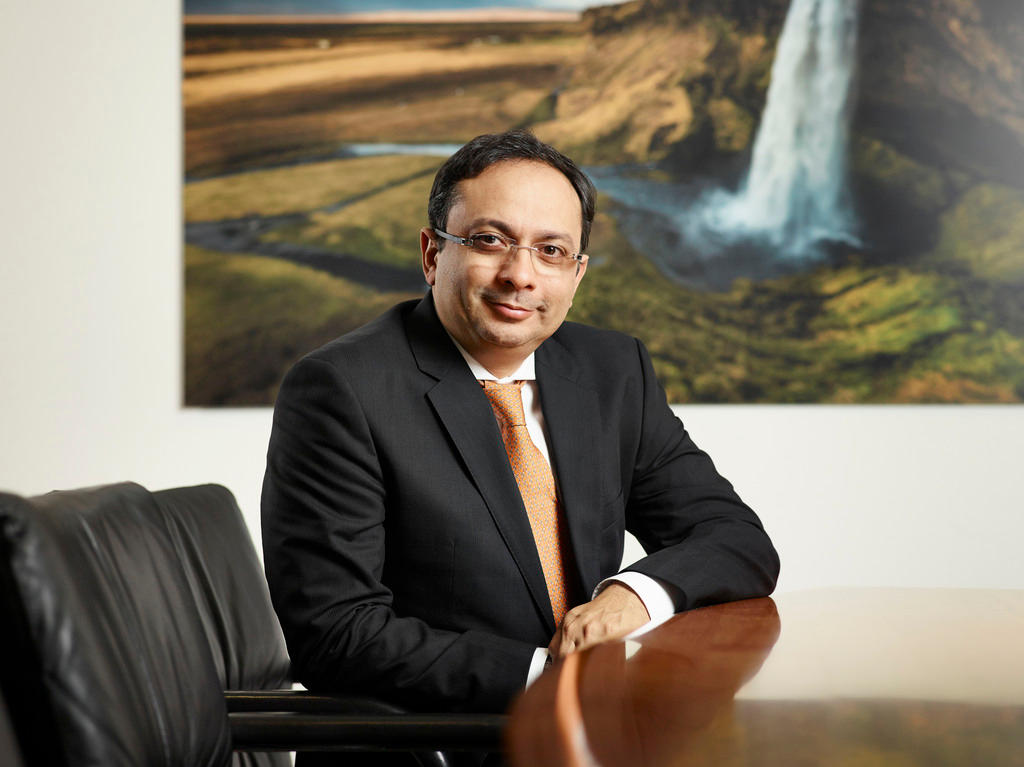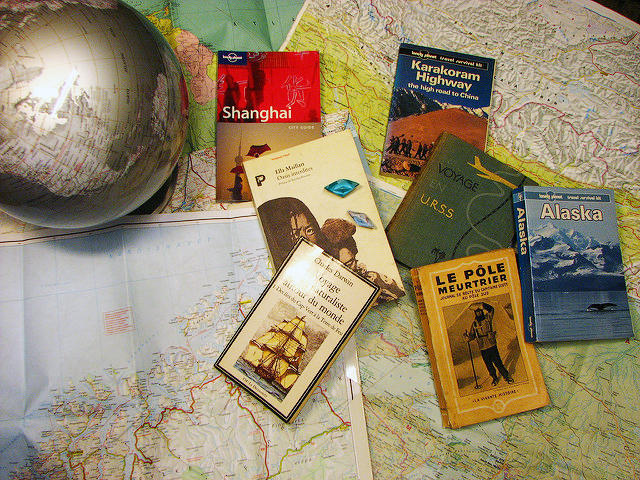Passport to profit for travel exec with a vision for visas

A look at the chief executive who has guided Swiss travel firm Kuoni through a bumpy time for the tourism industry.
When Zubin Karkaria began his career, he earned 2,500 rupees (CHF37) a month. His unenviable job at a small travel firm in Mumbai was to escort Indian businesses to trade fairs so they could find tools for printing and packaging their products.
Fast-forward 25 years, and Mr Karkaria says his life is almost unrecognisable.
After a single, bold idea to process visa applications on behalf of embassies, Mr Karkaria found himself head of the most consistently lucrative business stream at Kuoni, the multinational travel conglomerate.
Last November, after a restructuring exercise that claimed 350 jobs, Mr Karkaria was catapulted to the role of group chief executive and charged with turning Kuoni round.
The company had just sold the last of its troublesome consumer-facing operations, taking a CHF106.4 million ($108 million) writedown on goodwill and intangible assets.

More
Financial Times
External linkZipping weekly between Dubai and Zurich, Mr Karkaria, who is also a Zoroastrian priest, describes his life now as a kind of rat race. “When you get on this wheel, either you get down and get out – or you continue,” says the 48-year-old, perching restlessly on the end of his chair in a private room at the Taj hotel in London.
Like other traditional tour operators, the group was floundering as competition intensified from online hotel and holiday comparison sites. Kuoni is much smaller than its rivals and according to Mr Karkaria did not have critical mass: “When you are a certain size your buying power becomes stronger,” he says. “There were certain things that we weren’t ready to do and we didn’t do on time, like becoming digital on the tour operating side.”
Mr Karkaria’s remit is to accelerate a cost-cutting strategy and focus on Kuoni’s more profitable visa and passport services for governments and agencies. He was an obvious choice because 15 years previously he had started VFS.
Equipped with a dislike for state bureaucracy (Mr Karkaria is an admirer of Narendra Modi, the liberalising Indian prime minister), VFS set out to tackle the queues that form outside embassies worldwide by becoming an outsourcer for visa applications.
Led by Mr Karkaria, it introduced comfortable visa centres with coffee machines and magazines – first for the US government in India in 2001, and then worldwide. Now, staff trained in customer service help travellers fill in forms from 50 different countries. For an extra fee, applicants can sit in separate, quieter lounges and are treated to biscuits. The premium lounges are so popular in Dubai that the basic option can be quieter.
The advantage – from Kuoni’s point of view – is synergy, because applications from many countries are processed in the same place. From an embassy’s point of view, says an employee of VFS that used to work for the UK Border Agency, there is less security risk and hassle because members of the public do not have to enter consulates.
“That’s how a private sector works,” says Mr Karkaria, highlighting the mutual benefits of outsourcing the administrative work.
A senior executive from the early 2000s says Mr Karkaria was an “incredible entrepreneur” for innovating within such a large company. “In corporations, sometimes those guys either cannot or do not – because corporate soldiers succeed.”
The once-mainstream tour businesses have been sold, but VFS survives and has a 50 per cent share of the global outsourced applications market. It became a more attractive buyout target after selling its consumer businesses and this year was approached by Swedish private equity group EQT, which made a takeover bid worth about CHF1.4 billion.
The deal was completed in May, and now Mr Karkaria will prepare Kuoni for an eventual break-up and sale of the company.
“I can’t control the environment, I can’t control any side incident that happens,” he says. “But I can control my costs, I can control my infrastructure, I can control my sales team.”
He bats away questions about whether staff will go along with the changes, saying that “most” are happy. “We gave everyone the opportunity to do the job that they were doing but for one business [instead of the group].”
Mr Karkaria’s conversation moves back and forth between politics and the minutiae of his businesses with a roving energy – and he becomes animated on the subject of risk-taking.
“If somebody says, ‘I can’t do [something]’, then I will go in and help him to do it,” he says. “If I feel something is right . . . then I will take the responsibility and the ownership of doing it.” He even interrupts himself to (mis) quote Franklin D Roosevelt, with a thump of his hand: “Walk softly! But always with a big stick in your hand.”
Under Mr Karkaria, Kuoni will continue to strip back its so-called global travel services unit, which sells package tours and transport to travel agencies. The operation has battled with recession in Japan, where it generates most of its business. Mr Karkaria says it was unable to “bridge the gap” with sales in other countries.
The “global travel distribution” business, which sells hotel rooms wholesale to travel agencies, will expand in Asia, where Mr Karkaria is pinning his hopes on the emerging middle-class traveller.
“The first-timers,” as he calls them, will be the future of guided travel. “If you really want the organisation to focus you have to let go of something to achieve something – you can’t be a jack of all trades, OK?”
Kuoni’s group headquarters in Zurich will close. The three subsidiaries –including VFS – will operate out of their own units in Dubai, Zurich and London. After five years the company’s divisions are expected to be floated separately or hived off to different buyers, he says.
Mr Karkaria speaks openly of the “precision”, “accuracy” and “compliance” of Swiss colleagues – contrasting it with a working culture among Indians, who he says take more risks and act more quickly. Former colleagues say he has gained stature over time, but is not a sophisticate.
“In the beginning he was a lot less confident in an international context,” one says. “In an international management environment he is a humble person – he’s not someone who enters a room and everybody knows who he is, but nobody questions his capability.”
Mr Karkaria is confident about his approach as he seeks to prepare the business for a new and uncertain future. “Now whether they accept it or not, it’s up to them but I will always give my feedback saying if it was me I would do it this way,” he says. “I lead that way.”
Roots and religion
Rishad Lalla, a financial stockbroker with IIFL Capital, grew up with Zubin Karkaria in the Parsi colony in Mumbai which has gained a reputation for business acumen, in part due to the success of the Tata business family. They both studied at the HR College of Commerce and Economics, and worked part-time to fund a motorcycling habit broken for the sake of their families.
“From a small town, he’s gone on to become the CEO of Kuoni – but he started at a real grass roots level,” he says. “He has no airs.”
Mr Lalla emphasises the focus Mr Karkaria has cultivated as a devout Zoroastrian, which is a religion that emphasises good thoughts, words and deeds. “The thing you get from doing that is a lot of discipline . . . he is very religious.”
Copyright The Financial Times Limited 2016

In compliance with the JTI standards
More: SWI swissinfo.ch certified by the Journalism Trust Initiative



You can find an overview of ongoing debates with our journalists here. Please join us!
If you want to start a conversation about a topic raised in this article or want to report factual errors, email us at english@swissinfo.ch.